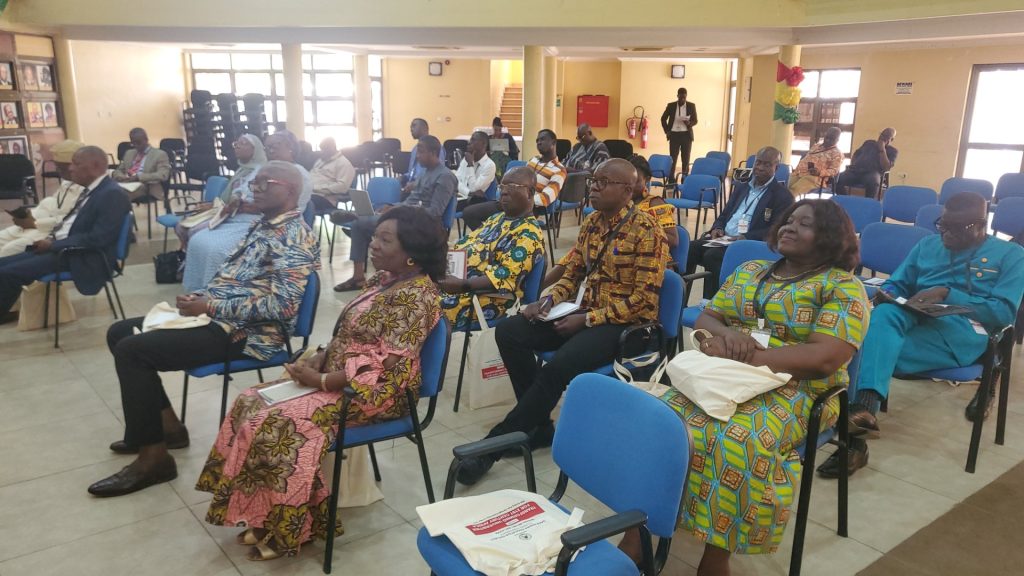|
Getting your Trinity Audio player ready...
|
The Ghana Tertiary Education Commission (GTEC) is seeking collaborate with the Ghana Academy of Arts and Sciences to position the country Africa’s most attractive destination for tertiary education.
The collaboration is expected to broaden the frontier of knowledge through stakeholder discussions to make tertiary education competitive in the country.
Professor Ahmed Abdulai Jinapor, Director-General, GTEC, said this at the opening session of a two-day Ghana Academy of Arts and Sciences Higher Education project conference in Accra.
The Conference is on the theme “Transforming Universities for 21st-century Africa.”
GAAS, in December 2022, launched a two-year higher education project titled “Motivating Higher Education Reforms in Ghana—Towards Equity and Sustainability.”
The aim was to offer a credible platform for reflection and stretching for workable and sustainable solutions to challenges in the higher education space.
Prof Jinapor said the project was timely as the sector was inundated with complex challenges that negatively impacted the accessibility and sustainability of tertiary educational delivery in the country.
The GTEC statistical report for 2022/2023 reveals that 711,695 students were enrolled in all tertiary education institutions across the country.
The figure represents a 12 per cent increase in student enrolments over the preceding academic year.
Public tertiary education institutions enrolled 89 per cent of the total student population, while 11 per cent were enrolled in private tertiary institutions.
The figures, the Professor stressed, called for concerted efforts to expand infrastructural facilities to ensure a conducive learning environment.
He said the Commission in 2024 accredited 1752 programmes and 162 institutions and recommended four private University Colleges for grant of charter, waiting for Presidential assent.
The Professor informed that most tertiary institutions were introducing programmes that were not relevant to the needs of the country.
“We are working to curb these issues by introducing stricter approval mechanisms for such programme,” he said.
The Commission, he said, would continue to adhere to its mandate of advancing world-class tertiary education in the country, hoping the recommendations from the project would contribute to advancing education in the sector.
Emeritus Professor Takyiawaa Manuh, Chair, Higher Education Project Management Committee, said policies and reforms by governments were to improve accessibility, diversify revenue sources, and improve governance.
Among the gaps the project identified, she said, were the unavailability of regular reviews of current policies and little effort to rely on independent research evidence for policy decisions.
Prof Manuh said the project called for effective collaborations among the educational space to make higher education fit for purpose.
Source: GNA


